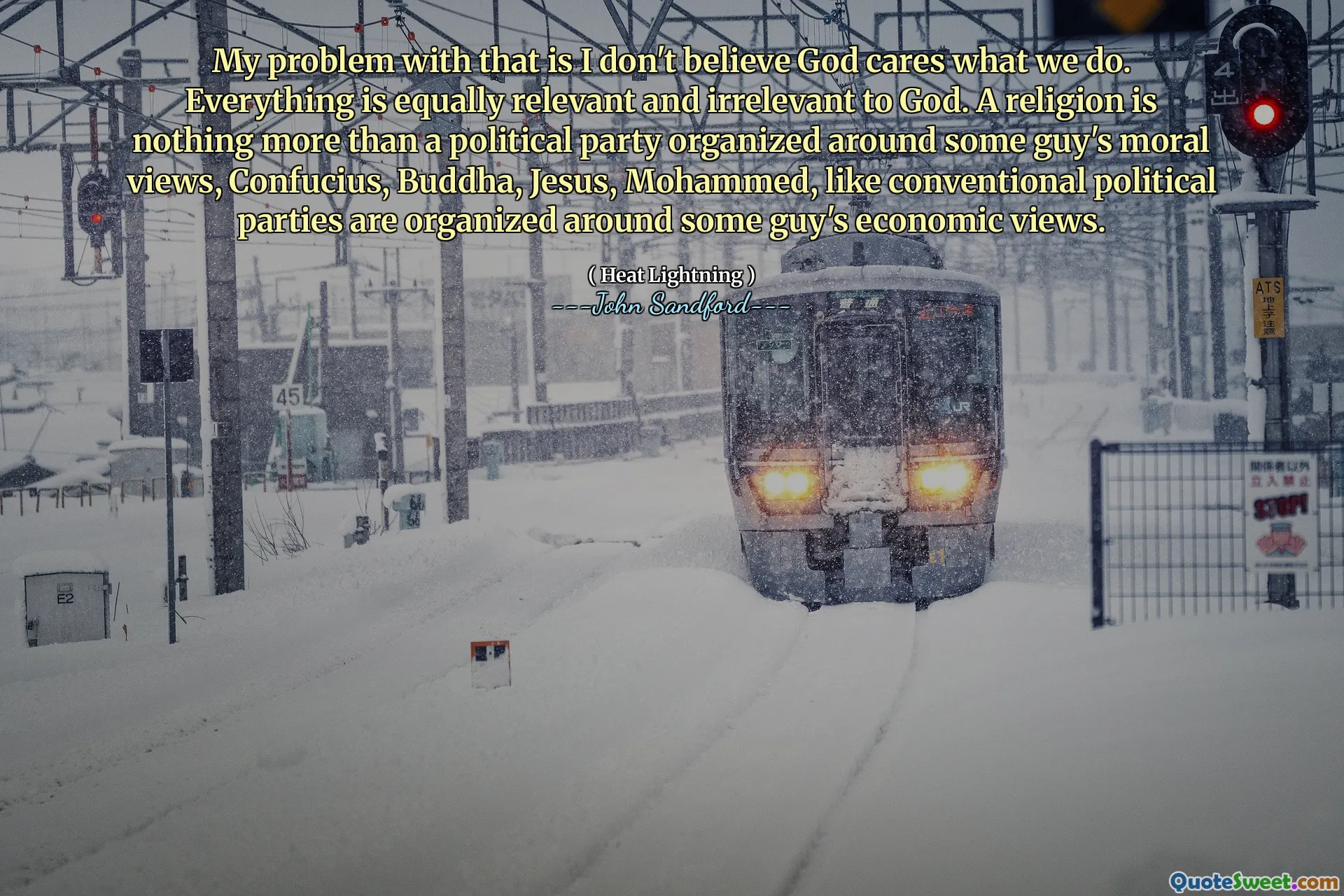
My problem with that is I don't believe God cares what we do. Everything is equally relevant and irrelevant to God. A religion is nothing more than a political party organized around some guy's moral views, Confucius, Buddha, Jesus, Mohammed, like conventional political parties are organized around some guy's economic views.
The quote reflects a critical perspective on the nature of religion and its relationship with divinity. The speaker expresses skepticism about the belief that God is concerned with human actions, suggesting that to God, everything holds equal significance. This viewpoint challenges the traditional notion of religious morality, proposing that all actions are equally valid or invalid in the divine perspective.
Furthermore, the comparison of religions to political parties highlights the author's view that religious systems are constructed around human ideals, much like political ideologies emerge from individual economic philosophies. This analogy emphasizes the constructed nature of belief systems, suggesting that they may be more about human governance than divine concern.







